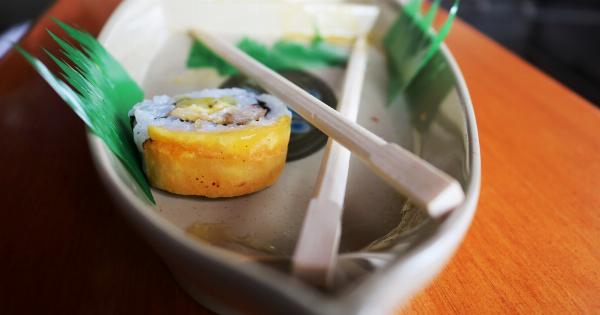Do you know that you could be putting your health and that of your loved ones at risk by storing food in your fridge carelessly? Poor food storage practices can lead to contamination and spoilage of food, which can cause foodborne illnesses such as salmonella, E.coli, and botulism. To prevent these risks, it is essential to understand the dangers of poor food storage in your fridge and how to avoid them.
1. Cross-Contamination
One of the most significant dangers of poor food storage is cross-contamination. Cross-contamination occurs when bacteria from one food item spread to another through contact, whether directly or indirectly.
This can happen when you store raw meat, poultry, or fish on a shelf above ready-to-eat foods or vegetables. The juices from these raw foods can drip onto other foods, contaminating them with harmful bacteria.
To avoid cross-contamination, always store raw meats or fish on the lowest shelf of your fridge or in a separate container. Use airtight containers or plastic bags to store these foods to prevent their juices from leaking.
Also, keep ready-to-eat foods and vegetables on the top shelves or in separate compartments.
2. Incorrect Temperature
The temperature of your fridge also plays a crucial role in preventing foodborne illnesses. If the temperature is too high, harmful bacteria can grow and multiply rapidly, while if it is too low, food can freeze and spoil.
The ideal temperature for your fridge should be between 35-38 degrees Fahrenheit.
Always use a thermometer to check the temperature of your fridge regularly. Also, make sure your fridge is not overloaded with food as this can affect its temperature.
Keep the door closed as much as possible to maintain the temperature and prevent warm air from entering the fridge.
3. Spoilage and Mold Growth
Another danger of poor food storage is spoilage and mold growth. When you store food in your fridge for too long, it can spoil or become moldy, leading to food poisoning.
Some foods such as dairy products, fruits, and vegetables are more susceptible to spoilage and mold growth than others.
To prevent spoilage and mold growth, always check the expiration dates of food items before storing them in your fridge. Also, make sure to consume or discard leftover food within three to four days.
Always store fruits and vegetables in separate compartments or drawers away from other foods to prevent the spread of mold.
4. Poorly Sealed Containers
Using poorly sealed containers to store food in your fridge can also lead to contamination. Air and moisture can easily enter these containers, creating an environment for bacteria to thrive.
This can cause food to spoil quickly, and harmful bacteria can contaminate other foods.
Always use airtight containers or plastic bags to store food in your fridge. These containers prevent air and moisture from entering and protect food from contamination. Make sure to seal containers tightly to prevent any leakage or exposure to the air.
5. Overcrowded Fridge
An overcrowded fridge can lead to poor air circulation, which can affect the temperature of your fridge and cause food to spoil quickly.
Overcrowding can also make it difficult to find and access food items, increasing the chances of food items being left unnoticed and forgotten, eventually spoiling.
To prevent overcrowding, organize your fridge properly, keeping similar foods together, and using appropriate containers to maximize space. Discard any old items or leftovers to maintain space.
Also, avoid storing items in the door section, which is the warmest part of the fridge.
6. Reheating Leftovers Improperly
Reheating leftovers improperly can also pose a danger to your health. When you do not heat leftovers thoroughly enough, bacteria can survive and cause food poisoning. It’s important to reheat leftovers to a temperature of 165°F or higher.
When reheating leftovers, make sure they reach the desired temperature all the way through. Use a food thermometer to check if the food is properly heated.
Also, refrain from reheating leftovers multiple times, as this can increase the risk of bacteria growth significantly.
Conclusion
Poor food storage habits can have severe consequences on your health and that of your family.
Cross-contamination, incorrect temperature, spoilage and mold growth, poorly sealed containers, overcrowded fridges and improperly reheated leftovers are the major dangers of food storage in your fridge. By following the tips provided in this article, you can avoid these dangers and ensure your food is safe to consume.




























